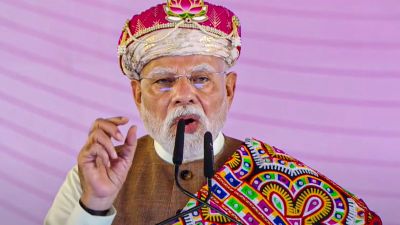Coal ministry,PMO at work on countering CAG report fallout
There are three CAG reports which will be tabled in Parliament on Thursday.
Prime Ministers adviser TKA Nair met coal minister Sriprakash Jaiswal to discuss on how the government should deal with the fallout of the CAG reports on coal block allocation,after they are tabled in Parliament on Thursday.
The meeting on Tuesday is understood to have fine-tuned Jaiswals response to both Houses,since the ministry was under the Prime Minister in the critical period for which the audit report has been written.
The crisis managers of the government are concerned that even the whittled down figure of Rs 1.86 lakh crore,which the audit report mentions is the loss to the government from the allocation of the coal blocks,could be embarrassing for Manmohan Singh.
Nairs meeting was the culmination of a series of steps the Prime Ministers Office (PMO) has been working on round-the-clock with the coal ministry to help it draft a reply to the auditors observations. There are three CAG reports which will be tabled in Parliament on Thursday. These are on the implementation of PPP projects at Delhi International Airport Ltd,on Coal India and on Power Finance Corporation. While the PFC report includes the issue of ultra mega power projects,the Coal India report examines the allocation of coal blocks.
The first draft of the report which was leaked mentioned the government extended undue benefits totalling Rs 10.6 lakh crore to a number of private companies through allotment of 155 blocks between 2004 and 2009,but the final report has brought it down to Rs 1.86 lakh crore.
In its reply,the coal ministry is understood to have described the CAGs contention of any windfall gain as erroneous arguing that the government has never reckoned the coal block allocation process as a means for revenue generation.
It has countered another contention of the audit watchdog that the government delayed the auctioning process,instead highlighting his ministrys push for introducing the bidding process which had culminated with the legislative changes.
Jaiswal is likely to tell Parliament that the delay of three years between initiating the process of legislative changes and introducing the amendment Bill in Parliament was mainly due to stiff opposition from coal-rich states like Chhattisgarh and West Bengal as their governments had reasoned that it would increase the cost of coal,negatively impacting value addition and development of industries in their areas and would dilute their prerogative in selection of an allottee.
The reply understandably seeks to negate any purported gains by the allottees saying gains would have accrued to them if they had the choice of either buying the fuel from Coal India or producing coal from their blocks.
But as CIL was unable to cater to the entire countrys demand,so comparison with the company price to arrive at windfall gain is only notional. While the concept of windfall gain is itself fallacious,even the calculation of the purported windfall gain appears to be erroneous, Jaiswal said in a recent meeting with his officers. Since allocating of coal blocks to the state-run firms is allowed even today there can be no loss or gain on account of allocation of blocks them,sources quoting the reply said. So far 62 blocks with geological reserves of 15.35 billion tonnes (BT) have been allotted to them and any possible gain from them would only accrue to the central or state governments,” Jaiswal told The Indian Express.
Photos


- 01
- 02
- 03
- 04
- 05





























